News
Reps Urge FG To Investigate Financial Activities Of Bandits, Use of Telecoms Network

News
ECOWAS Parliament Meets in Banjul to Tackle Impact of Sahel States’ Withdrawal
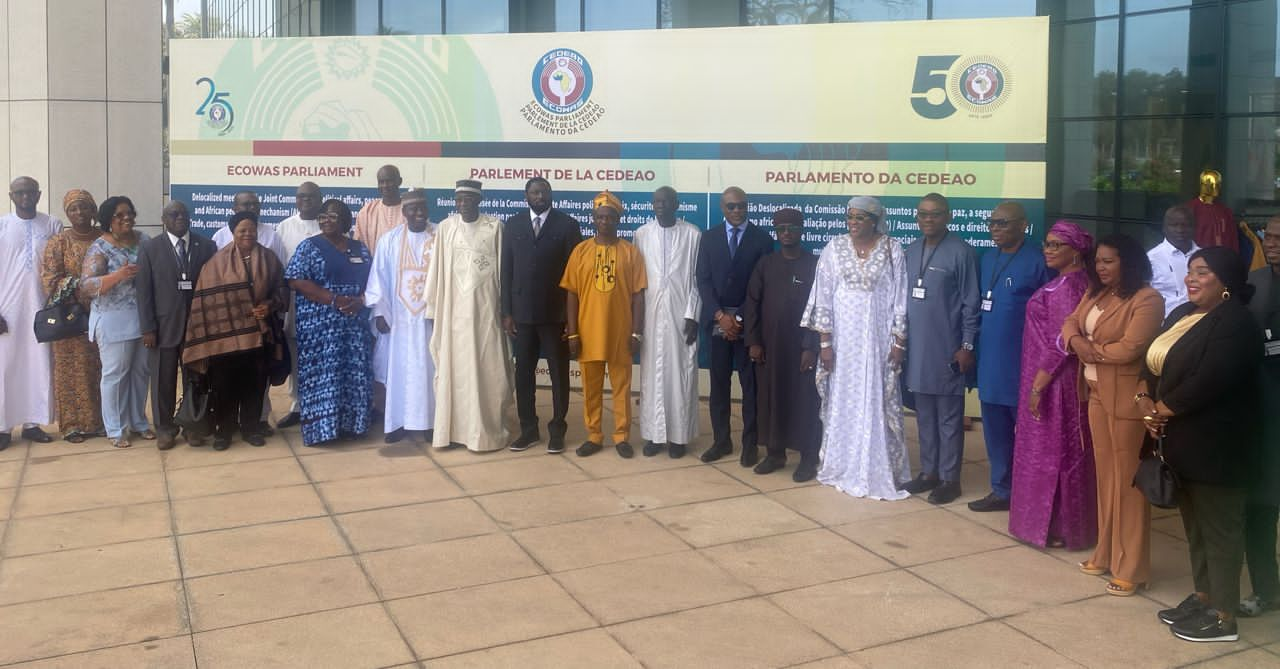
By Gloria Ikibah
The ECOWAS Parliament has commenced a critical series of meetings in Banjul, The Gambia, to address the political, security, socio-economic and humanitarian consequences of the recent withdrawal of Burkina Faso, Mali, and Niger from the regional body.
Speaking at the opening ceremony of the Delocalised Meeting, 4th Deputy Speaker of the ECOWAS Parliament, Hon. Billy Tunkara, said that two key meetings were underway: the Committee of Administration, Finance and Budget, reviewing the Parliament’s 2024 End-Year Budget Performance Report, and the Joint Committee on Political Affairs, Security, African Peer Review Mechanism, Legal Affairs and Human Rights, Trade, Customs and Free Movement, Social Affairs, Gender, Women Empowerment and Persons with Disabilities, focusing on the impact of the Sahel states’ withdrawal.
He said: “Given the evolving challenges in the region, including economic fluctuations, health crises, and social instability, it is essential for the Parliament’s financial strategies to align with the core principles of sustainability, accountability, and transparency”.
Tunkara lauded the leadership of President Adama Barrow of The Gambia for his commitment to regional integration and thanked the Right Honourable Speaker of the Gambian National Assembly and the Gambian delegation to the ECOWAS Parliament for their support.
“The Gambian people have always taken pleasure in welcoming their brothers and sisters from the Community, an attribution of my homeland that I take great pride in,” he added.
Reflecting on ECOWAS’ history, Tunkara however, he warned that this legacy is now under serious threat.
“ECOWAS, born in 1975 from the Lagos Treaty, has for five decades embodied the shared aspiration for a common destiny.
“The withdrawal of Burkina Faso, the Republic of Mali, and the Republic of Niger marks an unprecedented fracture. These countries, strategic and demographic pillars, have chosen to leave the common ship. This choice, effective since January, threatens not only our achievements but also the future of 400 million citizens,” he said.
The 4th Deputy Speaker outlined the far-reaching impacts of the withdrawal.
- Politically, ECOWAS has lost 20% of its members, weakening its voice on the international stage.
- Security-wise, the withdrawal of key players from the fight against terrorism in the Sahel poses serious risks.
- Socioeconomically, the reinstatement of strict border controls threatens trade, cross-border projects, and humanitarian aid.
- Humanitarian-wise, the isolation could worsen the plight of vulnerable populations.
“Our meeting goes beyond a mere diagnostic exercise,. It aims to rigorously assess the multidimensional impacts, imagine bridges where others see walls, and strengthen our resilience by identifying reforms”, Tunkara emphasized.
He therefore Parliament to produce concrete proposals including bold recommendations for maintaining dialogue with the Sahel states and reforms to consolidate ECOWAS.
The Deputy Speaker stressed the need for introspection and called for a renewed approach based on inclusion, transparent governance, and projects that improve citizens’ lives.
“The simultaneous withdrawal of three Member States is a wake-up call. It compels us to ask: why did the Member States choose to leave? Have we listened enough to their concerns? Have we been able to adapt our model to their realities?
“Let our debates be frank, but always guided by the spirit of fraternity that founded our Community.
“Today, it is up to us to write the next chapter. Despite the challenges, I remain convinced that ECOWAS remains the best bulwark against fragmentation. Although ECOWAS may now be fifteen minus three, nevertheless, our vision remains whole.”
Hon. Tunkara reminded the lawmakers of the founding spirit of ECOWAS in 1975, even as he expressed hope that the meeting in Banjul would mark the beginning of a renaissance.
“A renaissance where each state, each citizen, recognizes themselves in this common project. A renaissance where cooperation triumphs over selfishness, and where hope prevails over pessimism”, he asserted.
News
Olorogun Olori hails Wike’s political sagacity in South South
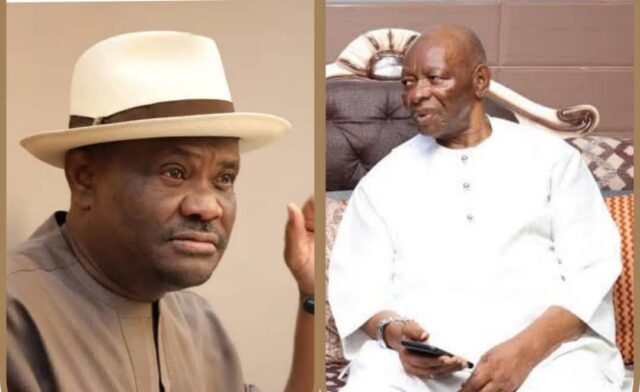
Elder statesman, Olorogun Morrison Olori, has hailed the Minister of the Federal Capital Territory, Chief Nyesom Wike, for his outstanding political leadership in the South-South region and his strategic role in advancing President Bola Ahmed Tinubu’s Renewed Hope Agenda.
Olori, an octogenarian and chieftain of the All Progressives Congress (APC) in Delta State, particularly praised Wike for his transformative work as Minister of the Federal Capital Territory (FCT).
In a statement made during a public policy dialogue in Abuja, Olorogun Olori hailed Chief Wike as “a tireless bridge-builder and result-oriented leader who has brought stability and strategic political direction to the South-South and beyond.”
Chief Wike has not only strengthened the political base of the South-South region but has also become a key player in driving the Renewed Hope Agenda of President Tinubu through inclusive governance and infrastructural transformation,” Olori said.
Highlighting Wike’s impact as FCT Minister, Olori pointed to the minister’s record-setting performance in the signing of over 5,000 Certificates of Occupancy, as well as his aggressive infrastructure renewal across the city, including road expansions, urban beautification, and housing developments. He described Wike’s efforts as “a masterclass in leadership and vision.”
“His work in Abuja has demonstrated that the Renewed Hope Agenda is not just a slogan—it is being implemented in concrete ways. He is delivering real, visible change,” Olori noted.
Olorogun Olori also emphasized Wike’s political courage in rallying support for national unity and economic revival, particularly in the South-South geopolitical zone, where he continues to serve as a stabilizing force and a voice of progress.
“Wike has used his influence not for personal gain, but to elevate the South-South and to help President Tinubu consolidate the gains of this administration,” Olori added. “This kind of partnership between the presidency and regional leaders is exactly what Nigeria needs right now.”
Olori, however, urged other political leaders to emulate Wike’s commitment to excellence and patriotism, emphasizing that Nigeria needs more leaders who “serve with sincerity and deliver with impact.”
News
Nigeria Felicitates with South Africa on 31st Freedom Day Anniversary

By Gloria Ikibah
Nigeria has congratulated South Africa on the celebration of its 31st Freedom Day anniversary, marking more than three decades since the end of apartheid rule.
This was contained in a statement issued by the Ministry of Foreign Affairs, on Sunday in Abuja, the Minister, Ambassador Yusuf Maitama Tuggar, extended warm greetings to his South African counterpart, His Excellency Ronald Lamola, Minister of International Relations and Cooperation.
Ambassador Tuggar described the day as a reminder of the historic victory of democracy over apartheid and a celebration of the resilient and unified spirit that continues to shape South Africa’s journey.
“Nigeria and South Africa share a profound bond forged through decades of solidarity in the liberation struggle. As we reflect on this milestone, we recall Nigeria’s unwavering support for the anti-apartheid movement, including diplomatic, material, and moral contributions that underscored our commitment to justice and the ethos of pan-Africanism,” the statement read.
Highlighting the strong bilateral ties between the two countries, Tuggar emphasized the shared responsibility Nigeria and South Africa have in promoting peace, security, and inclusive development across the African continent.
He noted that as Africa’s two largest economies and democracies, there is a need to strengthen collaboration in areas such as trade and investment through the African Continental Free Trade Area (AfCFTA), as well as cultural exchanges and youth empowerment.
“Therefore, on this Freedom Day, we stand with South Africa in honouring the sacrifices of heroes like Walter Sisulu, Nelson Mandela, Govan Mbeki, Thabo Mbeki and recommit to working together to realize the vision of a prosperous, peaceful, and united Africa,” he added.
-
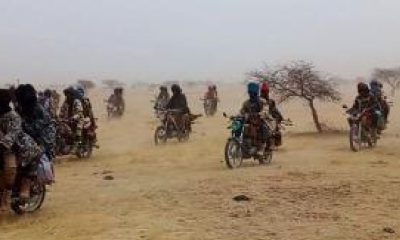
 News13 hours ago
News13 hours agoInsecurity: BUDA urges govt to quickly rescue Baruten from terrorists
-

 News19 hours ago
News19 hours agoJust in: Senator Natasha tenders satirical ‘apology’ to Akpabio
-

 News15 hours ago
News15 hours agoUNUSUAL! Without invitation, Police declared me wanted — Daughter of ABC Transport owner
-
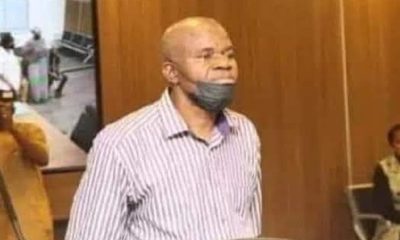
 News10 hours ago
News10 hours agoBreaking: Late gospel singer Osinachi’s husband sentenced to death by hanging
-
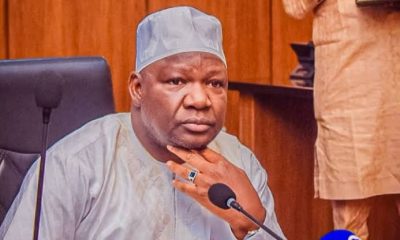
 News12 hours ago
News12 hours agoWeeks to 2nd anniversary, Niger deputy gov, plans to resign, move out personal effects
-

 Metro20 hours ago
Metro20 hours ago‘My husband always makes love throughout the night until morning’ – Woman Wants Divorce
-
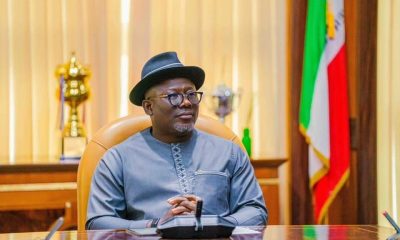
 News16 hours ago
News16 hours agoGov Oborevwori’s top aide suddenly resigns from govt
-

 Entertainment15 hours ago
Entertainment15 hours agoMy tongue slipped, Annie Macaulay apologizes after referring to Herself as ‘Idibia’ at Headies 2025






